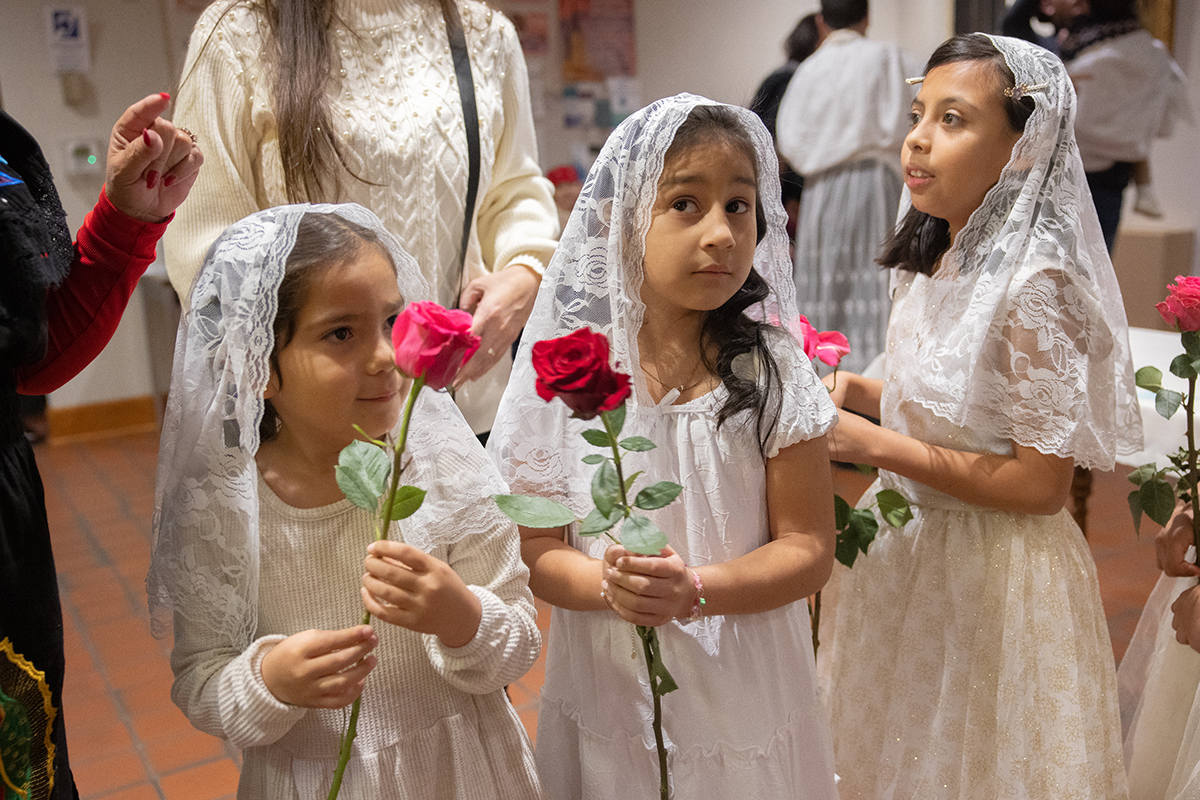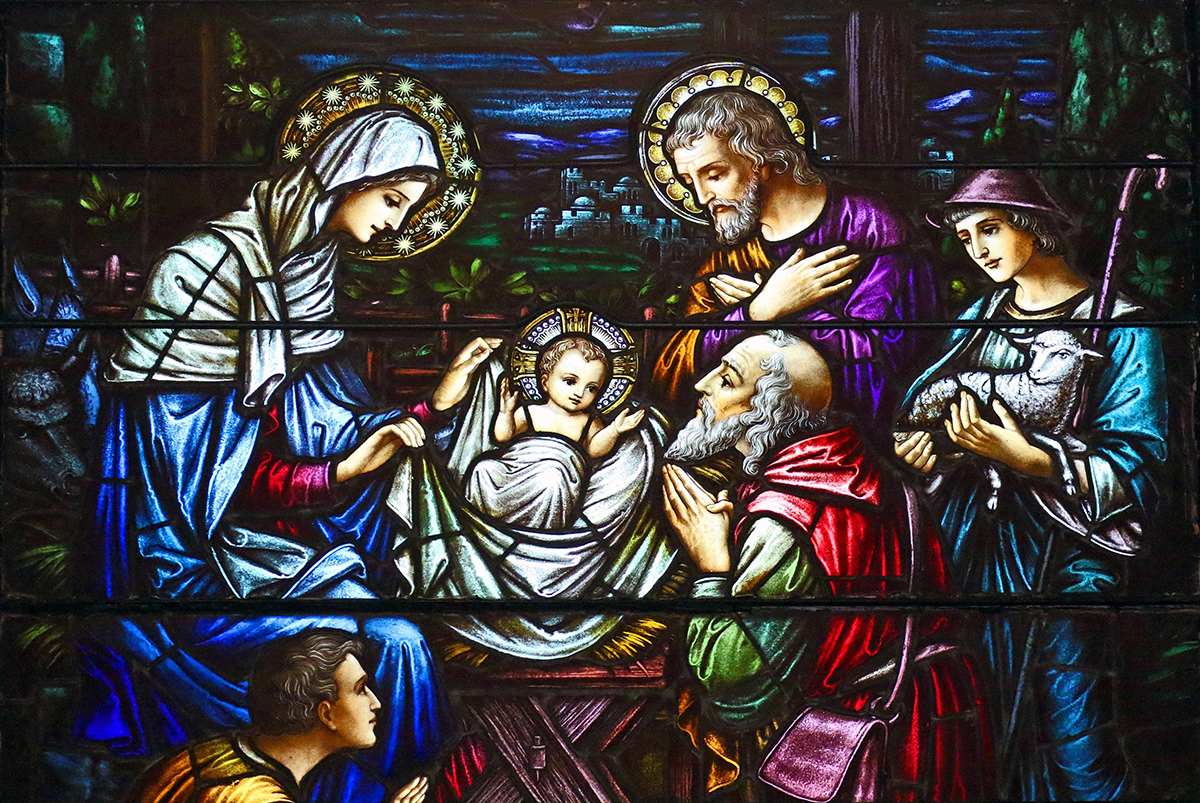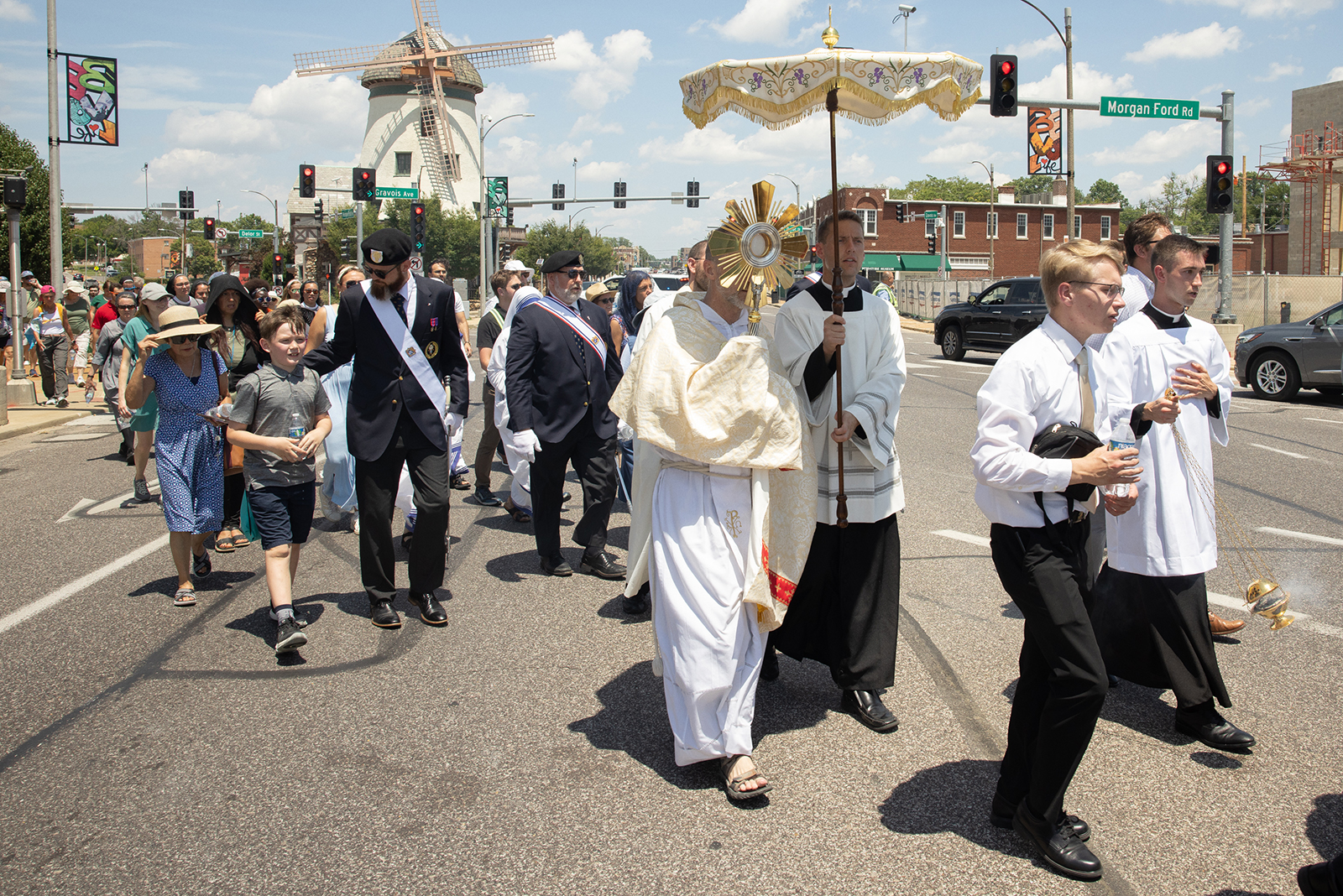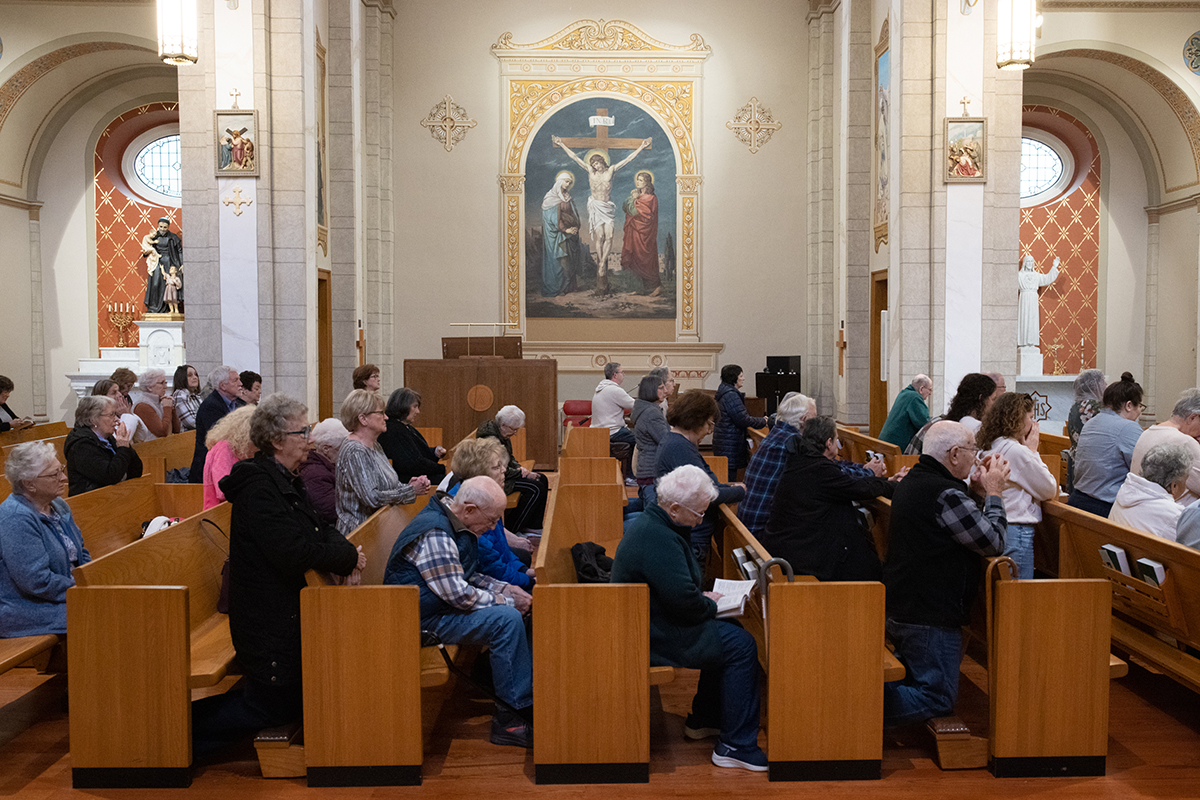Archbishop’s education initiatives provided dividends
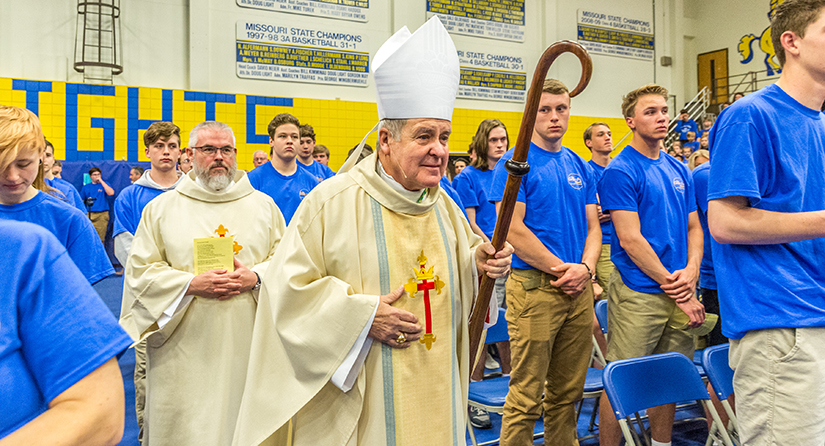
Education goals included catechesis/academic excellence, evangelization, social justice, stewardship
Education has been Archbishop Robert J. Carlson’s number-one priority since his arrival here. In 2011, he unveiled a framework plan for Catholic education. Called “Alive in Christ!” the mission advancement initiative included 10 priorities focused on four goals: catechesis/academic excellence, evangelization, social justice and stewardship. Some of the fruits of the initiative include increased collaboration among parishes and schools, the establishment of a scholarship program and new approaches in marketing and enrollment for schools.
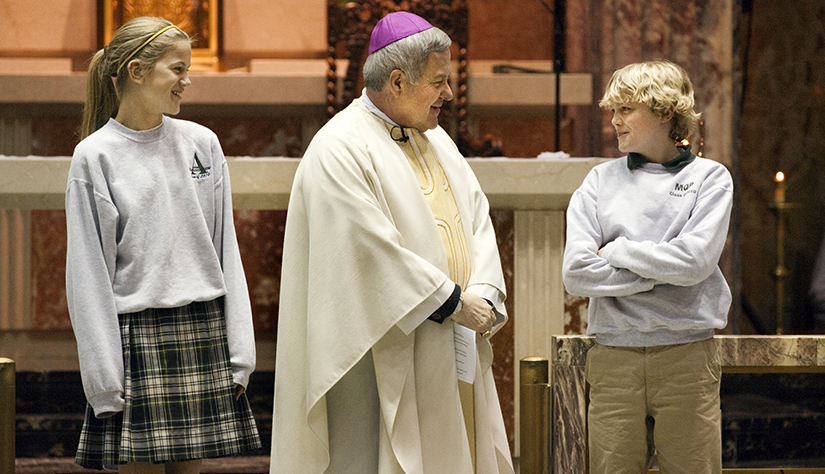
“Our schools have to be healthy to be Alive in Christ,” he said.
Since his arrival in St. Louis, more than 88,000 young people have graduated from Catholic grade schools, high schools and PSR programs (32,000 children just from Catholic elementary schools). The Archdiocese of St. Louis is the 39th largest diocese in the United States, yet ranks seventh in the nation for total number of students enrolled in Catholic schools.
Looking toward the future, Archbishop Carlson noted a partnership model of governance in the archdiocese, in which parishes are cooperating with regional school systems to provide Catholic education in the archdiocese. Examples include Holy Cross Academy, All Saints Academy and South City Catholic Academy. The goal of this model is to make Catholic education sustainable in the 21st century.
The archbishop established the Roman Catholic Foundation of Eastern Missouri, which in 2015 launched the Beyond Sunday campaign, initially to raise more than $100 million to aid students from low- and middle-income families and benefit programs at Catholic schools in the Archdiocese of St. Louis. The campaign grew beyond the initial goal, raising $110 million to date.
Additionally, the Today and Tomorrow Educational Foundation, since its inception in 1991, has provided more than $150 million in scholarship assistance to elementary school-aged children to attend the faith-based school of their choice. It is now the fourth largest scholarship organization in the United States. In the last 13 years, the foundation has grown from providing scholarships for 700 elementary school students to more than 4,500 students, and from a $500,000 organization to a $12 million organization.
The percentage of St. Louis area families who choose Catholic schools for their children is among the highest in the United States.
Kevin Short, board chair of the Today and Tomorrow Educational Foundation, said the numbers speak to the archbishop’s powerful legacy locally and across the country. “These numbers are transformational, and represent the future of our leadership in the Church and business community,” Short said.
The groundwork has been laid, Short said, “and 10 years later, Archbishop Carlson’s commitment has sustained the mission of Catholic schools as a pathway out of poverty for our most vulnerable children. Thanks to Archbishop Carlson’s leadership on behalf of the Today and Tomorrow Educational Foundation, his Mission Advancement Initiative spearheaded a scholarship program generated by all parishes throughout the archdiocese, providing children need-based tuition assistance scholarships that follow them from kindergarten through eighth grade.”
Since the Alive In Christ Scholarship Program was introduced, more than $40 million has been awarded to more than 5,000 families. Archbishop Carlson has also helped the foundation raise more than $6 million for elementary school scholarships at the annual Archbishop’s Gala each year.
An area that has been a focus for improvement is faith formation of Catholic teens who attend public high schools. “If they don’t get some kind of introduction, they’re more than likely than those in Catholic schools to walk” away from the faith, the archbishop said in an interview upon his 10th anniversary of installation in St. Louis. The archdiocesan Office of Catholic Education and Formation has taken measures to combine the efforts of schools, PSR programs and youth ministry programs, so there is more uniformity and better communication, he added.

The National Catholic Educational Association (NCEA) named Archbishop Carlson as a 2017 recipient of its prestigious Seton Award, given “annually to exemplary individuals whose support and service impacts Catholic education and the well-being of our nation’s youth.”
Archbishop Carlson, interviewed in conjunction with the award, said “Good Catholic education will train the next generation of Catholic leaders, and, this is more of social justice perspective, we help people through education get out of poverty and open the doors for all kinds of opportunities.”
Catholic education and evangelization work hand in hand, he said. And he’s stressed the importance of schools’ Catholic identity.
“With Beyond Sunday and parishes that have scholarships available, we help not only the poor but the middle class, because today, they’re the ones who are challenged,” said Archbishop Carlson, himself a shining example for Catholic education.
“I’ve been in Catholic schools from kindergarten through graduate work; I’ve benefited,” said the archbishop, who commended Catholic educators for showing him the way. “The Dominican Sisters, the Sisters of St. Joseph (of Carondelet), the Christian Brothers, diocesan priests and through graduate school with dedicated Catholic laity professors and clergy.”
Clergy and religious once made up the majority of Catholic educators in the U.S. at parish schools, but a decline in vocations over the past half century prompted them to turn over the operation of many schools to the laity. However, in the archdiocese, clergy and religious fill key leadership roles at the elementary and high school levels and are leading education into the future. For instance, the English Tutoring Project helps immigrant and refugee students in Catholic schools learn English language skills. Founded 21 years ago by the St. Louis Area Women Religious Collaborative Ministries, the program is paying dividends.
Education has been Archbishop Robert J. Carlson’s number-one priority since his arrival here. In 2011, he unveiled a framework plan for Catholic education. Called “Alive in Christ!” the mission advancement … Archbishop’s education initiatives provided dividends
Subscribe to Read All St. Louis Review Stories
All readers receive 5 stories to read free per month. After that, readers will need to be logged in.
If you are currently receive the St. Louis Review at your home or office, please send your name and address (and subscriber id if you know it) to subscriptions@stlouisreview.com to get your login information.
If you are not currently a subscriber to the St. Louis Review, please contact subscriptions@stlouisreview.com for information on how to subscribe.

